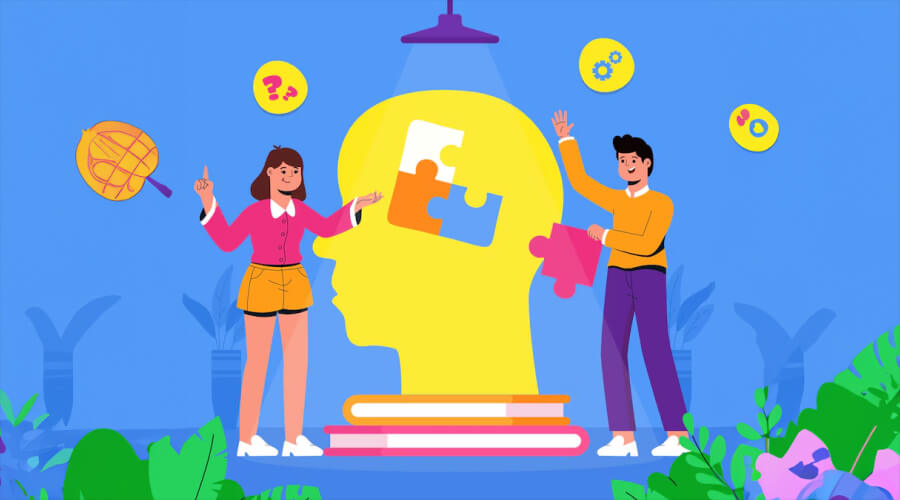
Coaching is a constantly evolving field. Committing to continuous learning is a must and an essential part of your coaching career. Lifelong learning can help your personal and professional growth so you can better serve your clients.
Here’s why continual learning is essential for your personal development:
Keeping Up with Industry Trends
New theories, methods, and tools emerge as the coaching industry evolves. Ongoing learning and completing training with the latest coaching methodologies and leadership coaches can help improve your coaching sessions. Adapting to latest industry trends and changes lets you give effective and relevant guidance to clients, enhancing the coaching experience.
Improving Coaching Skills

Even experienced coaches still need to improve their coaching skills. Constant learning will polish your existing competencies, learn new skills, and focus on learning and development. Whether you learn coaching niches or new coaching models, ongoing education refines your coaching proficiency.
Boosting Credibility and Professionalism
Clients will more likely engage with and trust coaches who care about their professional development. You can do this by:
- Attending conferences and training programs: You’ll get a lot of learning and insights when you attend these kinds of events. Learn from the best coaches in the industry in a day’s event or two.
- Pursuing certifications: The International Coach Federation (ICF) offers recognizable certificates for coaches to prove their skills and capabilities.
- Ongoing learning: Workshops, courses, and seminars help you pursue continuous learning to become better at coaching.
- Take ongoing training: Get training resources to become a better coach. Your learnings will become beneficial in training employees and other clients in their line of work.
- Write a blog: Demonstrate your knowledge and experience as a coach by writing blog posts about different topics in your niche. Publishing content consistently will inform clients that you’re a reliable source of coaching information.
- Maintain a website and social pages: Refreshing your website and social media accounts with new information boosts your online presence. Make sure to plan your posting well in advance to avoid overwhelming your audience with too much information and maintain your presence.
- Collect Testimonials: Ask your current clients to leave feedback on your website. Keep their names confidential to prevent their identities from being revealed.
Committing to building credibility can show your professionalism as a coach. While some methods may come from formal education, they also offer new ways of learning.
Expanding Knowledge Base

Acquiring knowledge and eventually expanding it beyond your initial training is brilliant. Gaining specialized skills increases your value as a coach. Use these skills to improve your coaching methods and deal with many issues. They can also help you offer more holistic guidance to your client’s journey.
Improving Client Results
The ultimate goal of coaching is to help clients achieve their career goals, improve their lives, and become better people. When you become an expert in coaching, continuous learning will equip you to give effective strategies that may lead to positive outcomes. Keeping yourself informed while working around the latest trends enables you to cater your coaching techniques to the client’s needs.
Fostering Innovation and Creativity
Continuous learning lets coaches think outside the box through exposure to new ideas, perspectives, methods, and techniques. Creativity keeps coaching sessions dynamic, engaging, and memorable for the coach and client. When your clients see something new and creative, they will more likely engage in your coaching sessions. You can even help bring out the best in them since the new methods will challenge them to think differently.
Keeping the Passion and Motivation Alive

As you learn new things, your passion for coaching may revive. This renewed passion will get you through when you feel burnt out. Dealing with new perspectives and challenges will make you motivated, which you can share with your clients to make coaching sessions more productive and engaging.
Building a Strong Professional Network
Continuous learning can allow you to meet other coaches in professional settings and build a network that may lead to collaborations, support systems, and referrals. This network can also lead to mentorship opportunities, more chances of connecting with others at community events, and peer reviewing others’ work.
Promoting a Growth Mindset

Engaging in continuous learning is an important part of personal growth. Lead by example by inspiring clients to use a similar approach for their own growth and well-being.
Parting Thoughts
Learning doesn’t stop for everyone, even coaches who have been in the field for years. Ongoing learning lets coaches employ new techniques and guide clients toward their desired growth.
Growing as a coach is a long journey that doesn’t stop once you start. Enrolling in a coaching academy with an ICF certification broadens your knowledge with clear and detailed programs. These places teach you all the essential lessons of being a coach, including idea execution, problem solving, and guiding clients to better outcomes. You’ll soon find yourself becoming more confident in your coaching skills over time.






